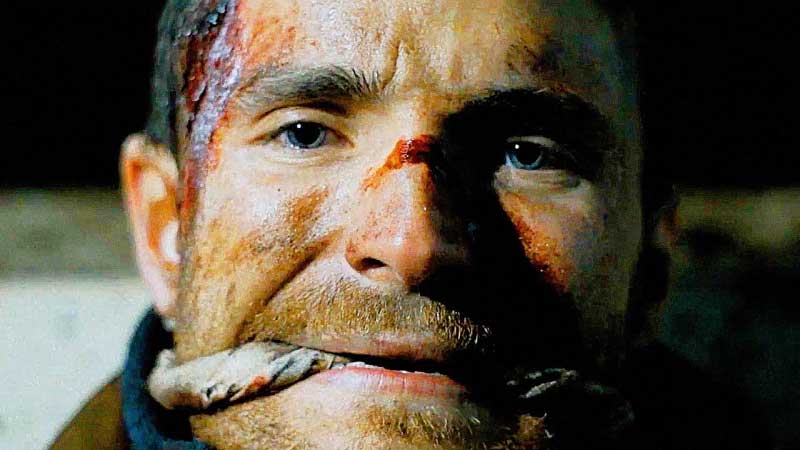
The performances are all over the map, in what struck me as a DePalma-like way. There's news footage on Joe's hotel room TV, but when we see, for instance, scenes from 9/11 or the Iraq war, it's not meant to drive home anything but the passage of time and its effect on Joe's psyche. The lack of a political dimension seems to have freed Lee to be looser and more (cruelly) playful than usual. The whole thing flows as dreams flow, linking situations to other situations and images to other images in a seemingly free-associative manner.Īt its wooziest, Lee's direction reminded me of Brian DePalma or John Carpenter in nightmare reverie mode, or Alfred Hitchcock when he seemed possessed by whatever horrible muses drove him. It's purely intuitive, at times musical, direction. Lee's "Oldboy," like Park's, obeys its own illogical logic (a hotel room hallucination starring Lee's brother Cinque has the goofy randomness of a joke in a David Lynch movie). At no point does the film try to be "realistic," except when it comes to the strong, simple emotions that its characters feel.
#Calibre movie summary movie#
The compositions in Lee's movie have such a painterly or "illustrated" quality that they might as well have thick black lines marking off the edges of the frame. Both versions find ways to visually suggest that you're reading a big-screen graphic novel with pages that come to life. It's worth pointing out here that Park's film is not an original story, but an adaptation of a Japanese comic book of the same name. Suffice to say that Lee and his screenwriter Mark Protosevich do a good job of keeping their cards close to their vest, and when they finally play them, the result has a sick, powerful charge. If you haven't seen the original "Oldboy," which provided the template for most of this one, I won't spoil it here.


It all leads to a climactic revelation identical to the one in Park's movie, though key details of the back story have been changed, and the denouement is more harsh and sad. In other cases, the film changes small details (including specific violent acts and lines of dialogue) or else jokingly acknowledges places where even it won't go (the scene in the original in which the hero devours a live octopus is thrown away by having Joe glance at one in a restaurant fishtank). Jackson (seemingly channeling his character from " Unbreakable"). Lee restages some famous (or infamous) moments from the original, including the hammer fight, pictured here as a more elaborately choreographed scene that unfolds over two levels of a warehouse populated by criminals and ruled by a glowering boss played by Samuel L. He joins up with a drug clinic worker played by Elizabeth Olsen and slowly begins piecing together the identity of his jailer: a rich and rather effete sadist ( Sharlto Copley of " District 9") who knew Joe a long time ago, and who now lives like a drug dealer from an '80s cop thriller.

Where the film's first half is a Kafka-esque fable of guilt and punishment, the second is a riff on the criminal revenge flick, with Joe working his way through the underbelly of a New York City that's been reimagined as a landscape of the mind. After seeming eons of self-pity capped by a suicide attempt, he starts a Travis Bickle-like regimen of Spartan self-improvement, winnowing himself down into a lean, mean killer, and finally escaping to seek vengeance against his tormentor. He stays there for twenty years (five more than in Park's version).
#Calibre movie summary tv#
Joe finds himself trapped in a jail cell made up to look like a hotel suite, getting mysterious updates on the room's TV about the life of the daughter that he never got to know. We sense that his alcoholism is a symptom of long-held guilt that will be explained as the tale unfolds, and we're more right than we could imagine.

Drink is ruining his life and estranging him from his wife and newborn daughter. From certain angles he looks and sounds like the young Nick Nolte: a brutish alpha male gone to seed, but not without a certain tenderness. Bruce Hornsby contributes a score in a Bernard Herrmann vein, an instrumental chorus to the modern urban version of a Greek tragedy.Īs Joe, the alcoholic ad executive, Brolin is a raw nerve at first-a bloated and haggard man whose smile and laugh are false. The camera goes much lower or much higher than you expect it to, and peers at the characters from disorienting angles. The lighting is dark but the colors are supersaturated, especially in scenes with a lot of blood, neon, or wet pavement. Like Park's version, this one's a reptilian brain film, all violence and sex and fear and revenge and crying and screaming. He gets clean in prison, then escapes to learn the identity of his tormentor and punish him. Like Park's version, "Oldboy" tells of a drunken, abusive lout named Joe Doucette ( Josh Brolin) who's imprisoned for a long time by a mysterious jailer.


 0 kommentar(er)
0 kommentar(er)
